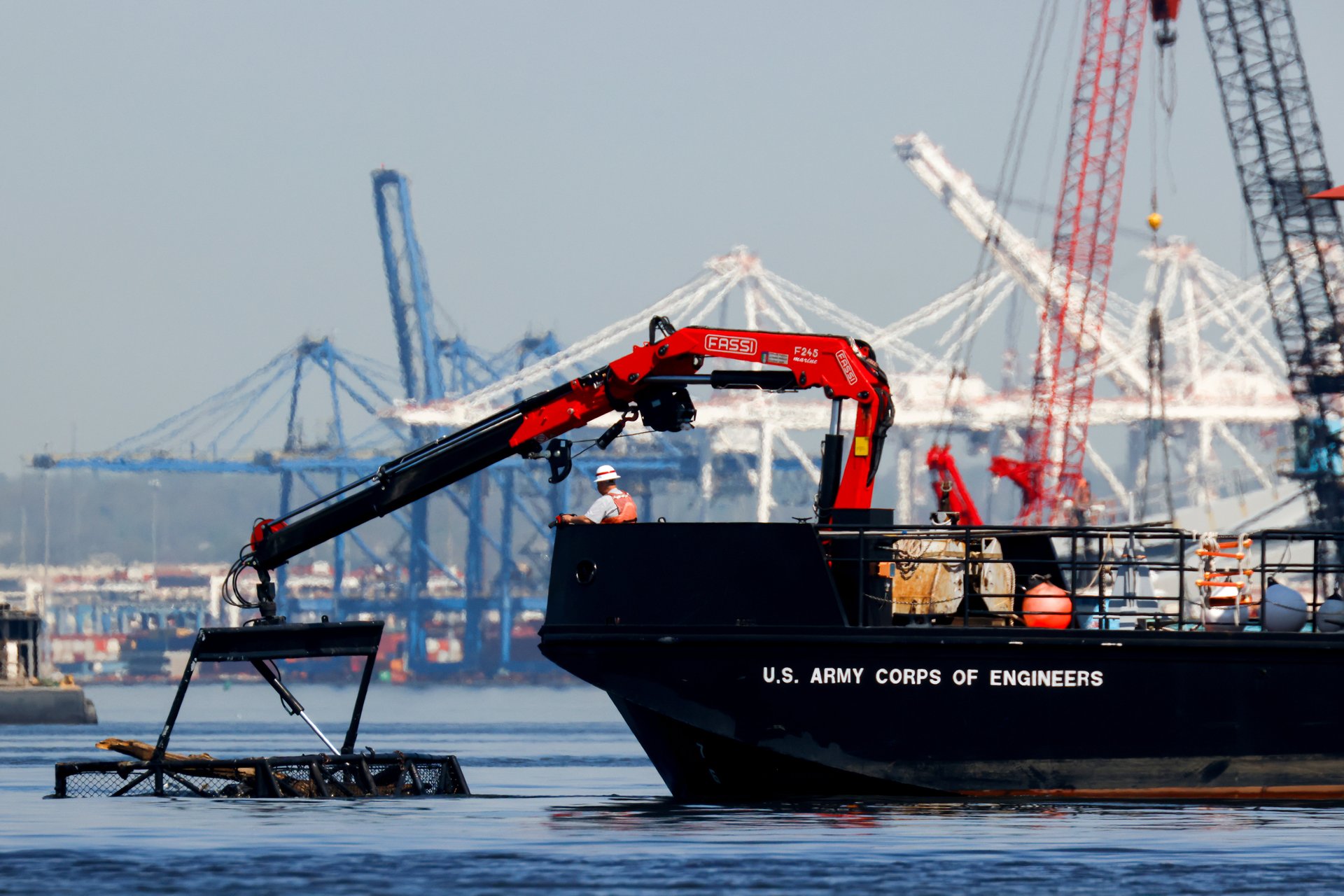Baltimore port to open deeper channel, enabling some cargo ships to pass after bridge collapse
The Port of Baltimore is preparing to open a deeper channel for commercial ships to get in and out for a few days

BALTIMORE (AP) — Officials in Baltimore plan to open a deeper channel for commercial ships to enter and leave the city’s port starting on Thursday — a significant step toward reopening the major maritime shipping hub that has remained closed to most traffic since the Francis Scott Key Bridge collapsed last month.
Suggested Reading
The new channel will be 35 feet (12 meters) deep, which is a substantial increase over the three other temporary channels established in recent weeks. It puts the cleanup effort slightly ahead of schedule, as officials previously said they hoped to open a channel of that depth by the end of April.
Related Content
Five of the seven cargo ships that have been stuck in Baltimore’s harbor will be able to pass through the new channel, including one loaded car carrier, officials said Tuesday, marking one month since the deadly disaster. Other ships are scheduled to enter the port, which normally processes more cars and farm equipment than any other in the country.
“Four weeks ago, our way of life was dealt a huge blow with the collapse of the Key Bridge,” Baltimore Mayor Brandon Scott said during a news conference.
The cargo ship that toppled the bridge had lost power and veered off course shortly after leaving the Port of Baltimore bound for Sri Lanka. The Dali remains grounded amid the wreckage as crews work to remove massive pieces of mangled steel that came crashing down onto the ship’s deck.
Six members of a roadwork crew — all Latino immigrants from Mexico, Guatemala, El Salvador and Honduras — plunged to their deaths in the collapse. Four bodies have been recovered from the underwater wreckage while two remain missing.
Relatives of the victims have been granted visitor visas, which will allow them to enter the U.S. for memorial services and, in some cases, bring their loved ones back home for burial. The immigrant aid organizations CASA and Catholic Charities’ Esperanza Center announced Monday evening that 16 family members have arrived in the U.S. with another eight expected this week.
Officials said salvage crews have now cleared enough debris — over 2,900 tons so far — to open the new channel to “commercially essential vessels” from Thursday until the following Monday or Tuesday. Ships will be required to have a Maryland pilot on board and two tugboats escorting them through the channel.
The passage will then be closed again until roughly May 10 while crews work to remove steel from the Dali and refloat the ship, which will then be guided back into the port, officials said.
The port’s main channel, with a controlling depth of 50 feet (15 meters), is set to reopen next month after the ship has been removed. That will essentially restore marine traffic to normal.
“We are going to work efficiently and we are going to work safely and we are not going to choose between the two,” Maryland Gov. Wes Moore said during the news conference.
In a court filing Monday, Baltimore’s mayor and city council called for the Dali’s owner and manager to be held fully liable for the bridge collapse, which they said could have devastating economic impacts on the region. They said the port, which was established before the nation’s founding, has long been an economic driver for Baltimore and the surrounding area. Losing the bridge itself has disrupted a major east coast trucking route.
The filing came in response to an earlier petition on behalf of the two companies asking a court to cap their liability under a pre-Civil War provision of an 1851 maritime law — a routine procedure for such cases. A federal court in Maryland will ultimately decide who’s responsible and how much they owe.